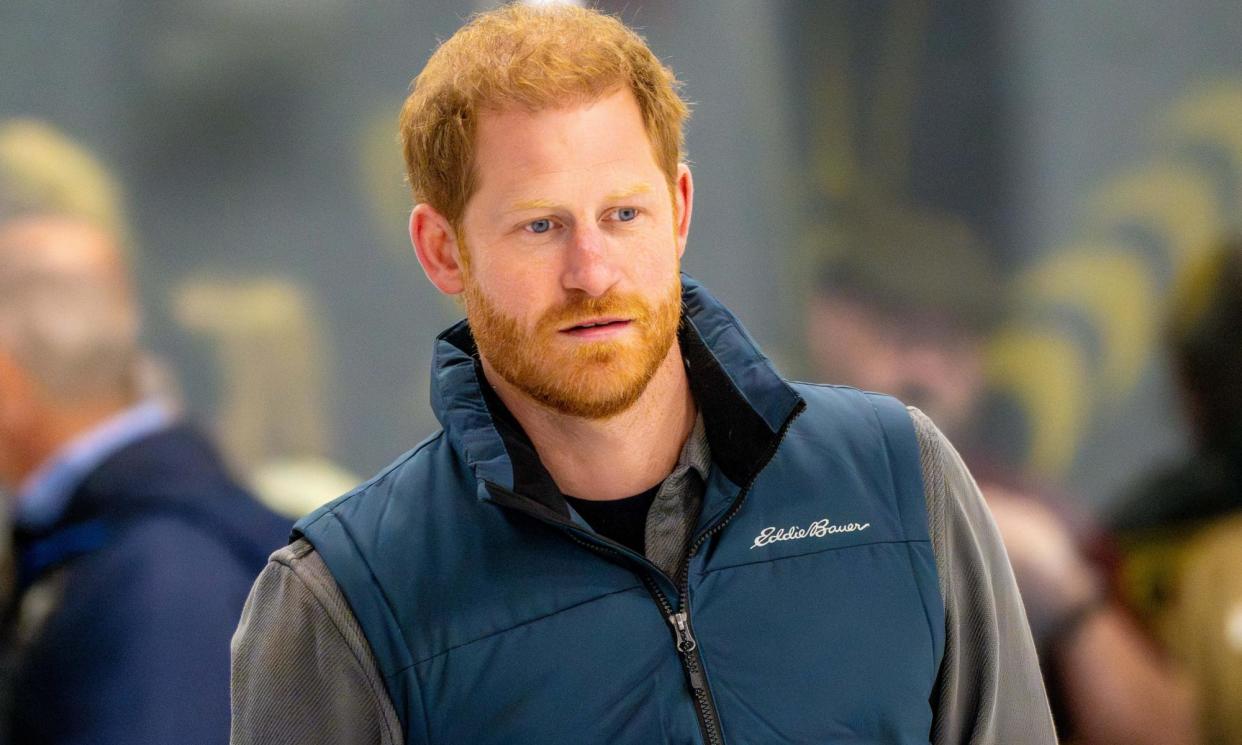Prince Harry loses high court challenge to personal security downgrade

The Duke of Sussex has lost a high court challenge against the government over a decision to downgrade the level of his personal security when visiting the UK.
Prince Harry took legal action against the Home Office after the February 2020 decision of the Executive Committee for the Protection of Royalty and Public Figures (Ravec) to accord him a lesser degree of publicly funded security after he was no longer a working member of the royal family.
Harry’s lawyers told the court in December that his treatment was “unlawful and unfair” and they warned of “the impact on the UK’s reputation of a successful attack” against the duke.
The case included specific challenges in relation to his security arrangements during visits to the UK.
The Home Office said the claim should be dismissed, arguing that Ravec was entitled to determine that the duke’s protection should be “bespoke” and considered on a case-by-case basis.
Home Office lawyers argued that the duke was no longer a member of the group of people whose security position was under regular review by Ravec, but he was “brought back within the cohort in the appropriate circumstances”.
The court was told it was “simply incorrect” to suggest there was no evidence that the issue of the impact of an attack was considered.
The high court judge Sir Peter Lane concluded that Ravec’s approach was not irrational nor procedurally unfair.
The Home Office welcomed the ruling while Harry’s lawyers said they would appeal.
In his 52-page partially redacted ruling, Lane said Harry’s lawyers had taken “an inappropriate, formalist interpretation of the Ravec process”.
He said: “The ‘bespoke’ process devised for the claimant in the decision of 28 February 2020 was, and is, legally sound.”
He noted that Ravec’s usual remit covered “risks arising within Great Britain as they affect principals who are in almost every case resident within Great Britain”, and given their residence in North America “the Duke and Duchess of Sussex do not fit readily within this framework”. He added that Ravec had “commissioned up-to-date threat assessments”.
Lane rejected the duke’s claims that Ravec had failed to follow its policy without good reason, concluding that the policy did not equate to a legal right and nor was the court able to make a value judgment. He noted there was no “mandatory set of criteria that it applies in order to consider whether an individual should come within the Ravec cohort”.
He said “ample channels of communication were available to the claimant” and therefore the process was fair and transparent. He added that Ravec would have been unable to accept the duke’s offer to “reimburse or proactively finance the cost of protective security”, and challenged his assertion that “private security cannot be effective”.
Noting that Ravec had determined that Harry’s position sat “outside existing processes and a new structure was instead being designed for him”, Lane said this suggested that “a ‘good reason’ has been shown from departing from any policy or practice”, and the duke’s lawyers had failed to prove otherwise.
He said that although it was understandable that the prince’s lawyers had raised concerns about intrusive paparazzi on 30 June 2021 after a charity event at Kew Gardens, given the circumstances of his mother Diana’s death, “potential problems arising from the activities of paparazzi are not a matter for Ravec”.
Ravec has delegated responsibility from the Home Office over protective security arrangements for members of the royal family and others, with involvement from the Metropolitan police, the Cabinet Office and the royal household.
Harry, who was not present at the December hearing, lives in North America with his wife, Meghan, and their children after the couple announced they were stepping back as senior royals in January 2020.
Most of the proceedings were held in private, without the public or press present, because of confidential evidence over security measures for Harry and other public figures.
Lane said his ruling contained redactions because if the information was made public it would have “a serious adverse impact on the individuals concerned, as well as being contrary to the public interest, including that of national security”.
A Home Office spokesperson said: “We are pleased that the court has found in favour of the government’s position in this case and we are carefully considering our next steps. It would be inappropriate to comment further. The UK government’s protective security system is rigorous and proportionate.”


